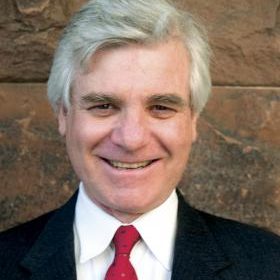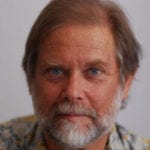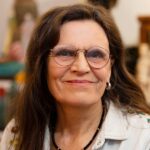If the Buddha ever ran for political office, I think this would be his platform:
May all beings enjoy happiness and the root of happiness.
May they be free from suffering and the root of suffering.
May they not be separated from the great happiness devoid of suffering,
May they dwell in the great equanimity free of passion, aggression, and ignorance.
Traditionally, Buddhism’s answer to this aspiration has been individual, internal, and spiritual. Yet as David Loy so insightfully points out in this panel discussion, the three poisons do the most damage to the most people in their social, political, and economic guises. If that wasn’t true in the ancient world, it certainly is now. The four immeasurables require us to cut all the tangled roots of suffering, including its political, social, and economic causes.
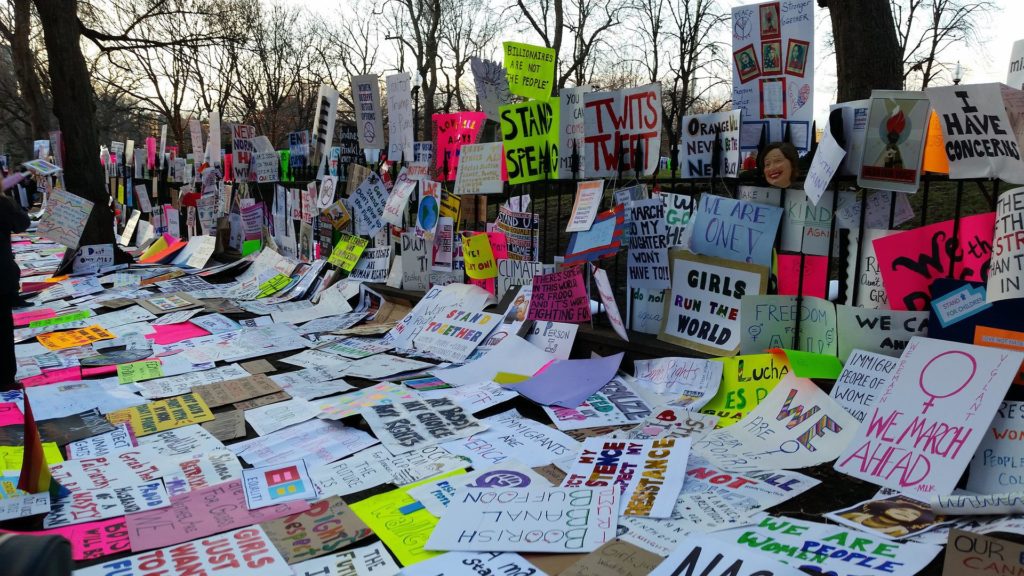
This is a momentous political season. We are entering an electoral cycle that will answer fundamental questions about the kind of country we want America to be. The Tea Party and Occupy movements are taking impassioned and opposing stances on the exercise of political and economic power, and reshaping the mainstream discourse. Over all this loom global issues like climate change that seem to strike at humanity’s very future. Politics these days is not just about who wins. It’s important.
If political and social engagement is an inescapable part of our vows, as I believe it is, then we need to do it effectively, and in a way that is never detrimental to our central mission to offer the dharma to all who need it. This raises interesting questions about skillful means. Here are a few.
Is Buddhism inherently liberal? The vast majority of American Buddhists are liberal—often very liberal. Is this a natural reflection of Buddhist values of compassion, generosity, and nonaggression, or is it just the way Buddhism happens to have taken root in the West? In the current political climate, Buddhist values are best served by the left. But in other places or other times it might be different. It is helpful to remember that conservative values like responsibility, self-discipline, merit, and respect for the past are also dharma principles.
Support values or parties? What is the most skillful way to make that four-point platform of the Buddha’s a reality? To live and promote Buddhist values and let people draw their own political conclusions, or explicitly identify American Buddhism with a particular position on the political spectrum? While individual practitioners can and should be politically active, it is a stronger and more inclusive strategy for American Buddhism as a whole to focus on promoting its values—universal human values that transcend ideology—and not take on the limiting label of a partisan stance. Although I am strongly a Buddhist for Obama, I don’t think “American Buddhists for Obama” would really be helpful to the dharma (nor to Obama, for that matter).
We cannot wait until we achieve enlightenment. We need to act now, offering society our insight and values in the most skillful way we can…
Are we truly inclusive? Does a monolithic political culture serve the dharma well? We talk a lot about diversity—except political diversity. Our panelists acknowledge that people with conservative political and social views often don’t feel at home in Buddhist centers (nor, I must acknowledge, reading Buddhist magazines). People of all types need the dharma, not just educated, middle-class liberals. Is a Buddhist party line keeping people who need it away from the dharma?
There are those who argue that the best way to benefit sentient beings is to leave social and political engagement aside and concentrate on achieving enlightenment. Yet few of us, even the most devoted, will lead lives of full-time practice. We will make our contribution from within society—in our daily practice, in our relationships with those close to us, and in our lives as citizens and members of society. We cannot wait until we achieve enlightenment. We need to act now, offering society our insight and values in the most skillful way we can—and to our surprise, maybe finding realization too.

Buddhadharma: Do all varieties of Buddhism inevitably include some element of political engagement because of one’s concern for the liberation of all beings?
David Loy: The Buddha emphasized that all he really taught was dukkha and how to end it. But given the political context he lived in, the kinds of social and political dukkha that he could address were limited. The Buddhist sangha had to come to some accommodation with the state. As far as I know none of those states in Asia were democratic, but we’re in a different situation now. The Western emphasis on social justice has helped us become more aware of the opportunities not only for socially engaged Buddhism, but politically engaged Buddhism. As we deepen our awakening, we realize that our own dukkha can’t be distinguished from the dukkha of others. I’m reminded of a wonderful quotation from Nisargadatta Maharaj: “When I look inside and see that I am nothing, that’s wisdom. When I look outside and see that I am everything, that’s love. Between these two, my life turns.” As we overcome our delusive sense of a separate self, we can no longer pursue our own well-being with indifference to the well-being of others.
Joan Sutherland: The results of practice can lead to political engagement. Over time, there tends to be a deepening of gratitude for the fact of existence, for what we speak of as interpermeation, which is often referred to as interconnectedness; I use the word interpermeation because it gives a stronger sense of the way we affect one another. That gratitude is not an emotion but a way of being, fundamentally, and its expression quite often occurs as generosity. The generosity then looks for ways to be helpful. That seems to be quite a natural, organic development with long-term practice.
Mushim Ikeda: Human interactions are inevitably political, so except in the anomalous case of people living totally off the grid, they’re going to have some level of political engagement. Even with just one other human being, political dynamics are at work because people have different needs and different ways of strategizing to fulfill those needs. The Jodo Shinshu Buddhist practice of reciting Namu Amida Butsu [Sanskrit: Namo Amitabha Buddha], taking refuge in Amitabha, has really enriched my own Zen practice of gratitude. However, when I was in the monastery for eight months in South Korea, it was really tough. It had produced brilliant nuns, and the monastery was known for its high attrition rate. Because of its hierarchical system, it was one of the most savage, brutally political places I have ever been. I did not see immense amounts of gratitude or generosity arising as much as political leveraging, people trying to play the system so they could get their needs met. I was steamrolled any number of times because I came in as a sort of quasi-naive American person with democratic values and did not have the cultural knowhow to succeed politically in that system.
Buddhadharma: You’ve all described political engagement as a result of being interconnected. How is this different from politics that’s about fighting over limited resources or the kind of politics Mushim just described—something dirty and territorial that’s about asserting one’s place at the expense of someone else, such as office politics or electoral politics?
The Buddhist emphasis is not on good versus evil, but delusion versus wisdom.
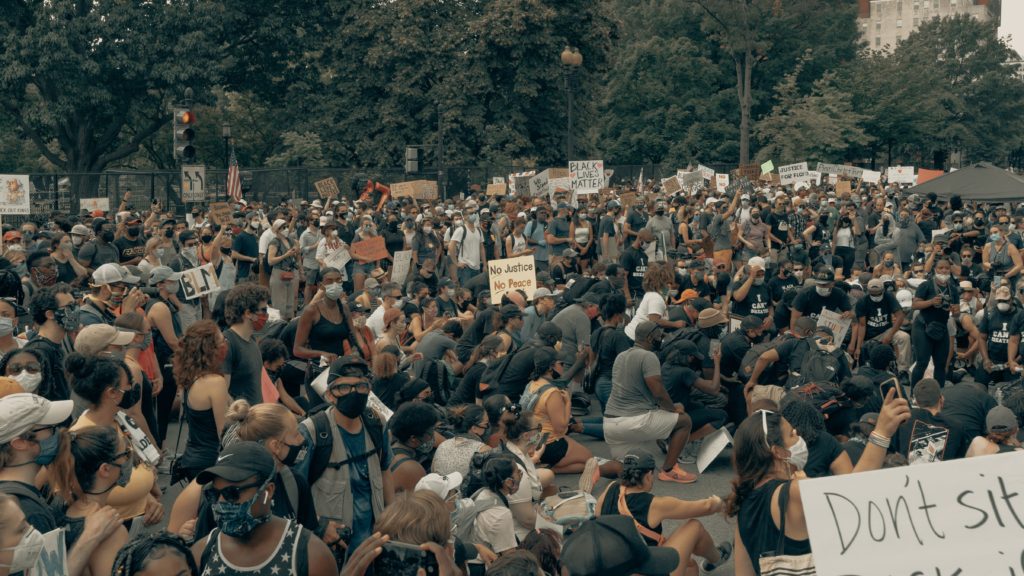
Mushim Ikeda: We do need Buddhist theory and goals to guide us, but people’s motivation for political engagement is in direct correlation to their economic security and access to societal resources. For those who are more privileged, whether they’re considering how to vote or whether to get involved in political action, their survival or civil rights don’t depend on whether they get engaged. I recently went through Martin Luther King Jr.-inspired nonviolence training, and it made me consider how different my relationship to the bus boycott might have been based on what race I was. Whether I wanted to disrupt my everyday activities to advance the cause of civil rights for all surely would have been based first on how it would affect my life and then on that realization of interconnection.
David Loy: Politics in the broad sense involves engagement with lots of people, most of whom are not interested in Buddhist practice. We have to acknowledge that we’re dealing with many different types of ego and ego-based institutions. Buddhists like to emphasize being in the here and now and we want to focus on the process rather than a goal. But if we get involved in politics, it’s because we’re trying to achieve something. That can give one a future orientation that tends to lose the here and now. There’s always going to be some tension between thinking in terms of means and ends—causality—and acting out of an emptiness that has nothing to gain and nothing to lose. The challenge of political involvement for Buddhists is not sacrificing either because we’re so completely focused on the other.
Buddhadharma: Many a Buddhist practitioner would say that they go on retreat or sesshin because they want quiet time, a respite from the world where they can work with their own mind. If that space becomes politicized, they may no longer feel it is a refuge for them.
Mushim Ikeda: I have to laugh when people say they would like to live like a nun or monk in a temple or a Buddhist spiritual community, because they like to be alone and meditate all the time. That’s the last thing you’re going to find in any of those places. There will be times, hopefully, that it’s quiet. There will be a schedule, and during that time people tend to be quiet and well behaved. However, in any community, virulent tensions will arise because of individual differences. Human beings are going to have conflict, and conflict generates a lot of noise, both internally in the mind and externally in the environment. As an example, I heard about one residential community where the kitchen staff got into an acrimonious and lengthy debate about whether there should be one large bottle of Tabasco sauce kept in the condiments area or small bottles at each table.
David Loy: It’s important to distinguish dharma practice on the personal level—where we work on our own transformation— from political activities. People shouldn’t be required to have a particular political view to come to a dharma center. Practice is what enables us to see the connections between personal transformation and social transformation. Those of us who are fortunate enough to be able to practice in a dharma center have the resources and the opportunities to engage, which is something most people can never take for granted. With privilege always comes responsibility, and we need not only to acknowledge the privilege but to act according to it.
We need to listen to a lot of different voices, and not just because we happen to stumble upon an important conversation. We need to seek out voices we might not ordinarily run into in our lives.
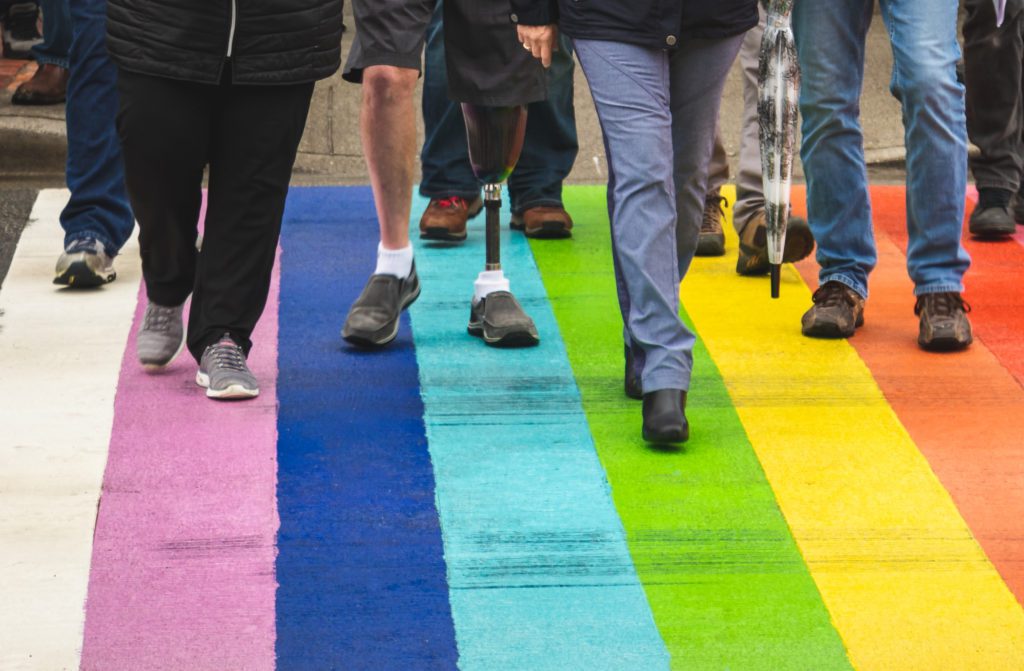
Mushim Ikeda: It seems natural that Buddhist communities, at least in the United States, would tend to form around people who have political affinities. They might not all vote the same way, but there are going to be more similarities than differences. Our mission at the East Bay Meditation Center in Oakland is centered on diversity and social justice. There’s a weekly meeting for those who self-identify as people of color, and a group called the Alphabet Sangha for people who selfidentify as lesbian, gay, bisexual, transgender, queer, intersex, or same-gender loving. Politically, it would be unusual for someone to come to the center and say, “Respectfully, I am totally against same-sex marriage. Because of the way I was raised, I think it’s an abomination. I really want to walk the path of peace and I love doing meditation, but this is the way I feel and I’m going to vote according to my feelings.” Even if a community provides, as Joan said, the ability to spaciously relax within the practice and study of the buddhadharma, there needs to be some political cohesion. I would regard it as a sign of maturity if a sangha were able to open up dialogue among people who have widely divergent views because of their own backgrounds, facilitated by someone who’s skilled in issues of power and privilege as they play out in the United States.
Joan Sutherland: As well as the skill, there’s also the intention. When we went to war in Afghanistan and Iraq, although most of the people in our sangha would have been against those wars, I wanted to be absolutely sure that no military person would ever feel uncomfortable sitting with us. It wasn’t a formal thing but rather an intention to keep things open. One of the results is that when people have had different views about things, we’ve been able to talk about it. Whatever conclusion we come to, everybody gets to be heard and listened to and nobody is either overtly or covertly silenced.
Buddhadharma: If taking political stances and acting politically are a natural outgrowth of one’s dharmic aspirations, interconnectedness, and generosity, what kind of actions would you consider to be skillful? Is it skillful to join in a protest movement such as Occupy, for example, in the name of Buddhism or a particular Buddhist organization? Is going to Occupy events and having a banner there saying such and such a center supports Occupy skillful and helpful?
Joan Sutherland: We just went through this process in Santa Fe, and for us it was very important that we had a meeting where everybody had a chance to say what they wanted.
Buddhadharma: How did it emerge as something that you or the sangha wanted to address?
Joan Sutherland: Initially the impulse came from me, because I felt very strongly about wanting to support the Occupy movement. In the beginning, I felt there was something extraordinary about the movement in general and in relationship to the history of political engagement in Buddhism. It seemed to be doing exactly what Buddhists have always done, which is to bear witness. Occupy was saying: Hey, there’s a serious problem here; people are really suffering, and we need to pay attention to that. That was about as pure a Buddhist message as I could imagine. On that basis, I put the question to the community. At the meeting, some people had what I thought was an important concern—that we not engage in the kind of us-and-them and sometimes aggressive or violent rhetoric that was occurring in some places. We decided we would participate in Occupy Santa Fe once a week. There was no coercion or obligation, and whoever wanted to come would show up for an hour on Wednesday mornings, bringing warm clothes and groceries to share. We’d just sit—no banner, no tent, no literature—meditating on tarps on the ground, and when we left, we’d haul out some garbage.
Buddhadharma: Some sanghas have forums, usually online, where people have presented strong political views with an implicit sense that there’s prior agreement with them by the rest of the sangha.
Joan Sutherland: The important question is, what is the culture of your community? If persuading people politically is congruent with that culture, okay, but if people are being made uncomfortable by it, you’ve got a cultural problem and that’s what you need to address.
Buddhadharma: Say a fellow sangha member associates the Buddhist principle of bodhichitta with voting for a particular candidate or party. Is that appropriate?
Mushim Ikeda: Such a person can always go on Facebook, where they’re with a group of like-minded people and can organize to their heart’s delight and discuss the bodhichittaness of any particular action. You can always find a way to organize and be politically active that’s culturally appropriate, and therefore more effective.
Buddhadharma: The prevalence of anger in politics scares a lot of Buddhists. How do you suggest that people work with that anger?
David Loy: Fundamentally, anger is a kind of energy, and the issue is whether we understand this energy and how to use it wisely. If it’s understood in a dualistic way, the self-righteousness of an ego that’s attacking somebody else, it’s very dangerous. But one could also understand anger within the larger context of love. Can we have a politics based not on anger but on love? That, of course, fits in well with the Buddhist emphasis on compassion and nonduality, and realizing that we’re not separate from other people. But there is still a role for the energy that gets expressed as anger, such as when people who should be held in a loving situation are being abused or taken advantage of. Although we in the Occupy movement may be saying, “We are the 99 percent,” it’s not as though we are trying to promote the interests of the 99 percent by destroying the 1 percent. We can’t be naive about the challenge of dealing with the power of the 1 percent, but from a Buddhist standpoint, the emphasis is on realizing that what we’re working toward is ultimately going to be for the benefit of everyone.
Buddhadharma: Identifying the anger as an energy, as opposed to something we would get rid of—throwing out the baby with the bathwater—is quite interesting. What does the dharma offer in working with that energy?
For those who are more privileged, whether they’re considering how to vote or whether to get involved in political action, their survival or civil rights don’t depend on whether they get engaged.
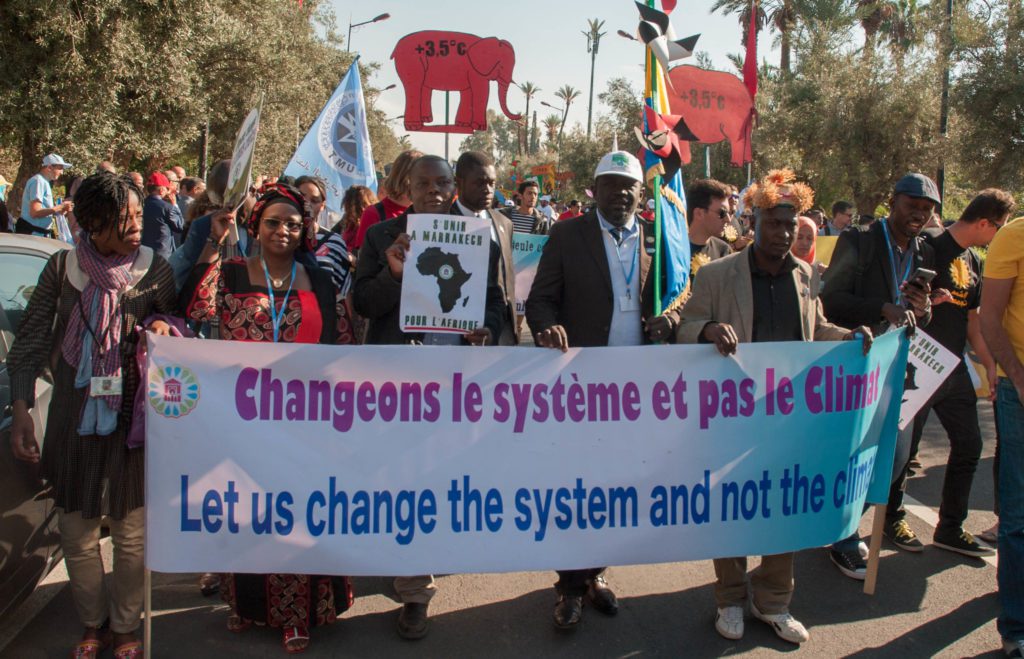
Mushim Ikeda: A good practice question for the dharma students I work with, many of whom are strong social justice activists, would be: Can I just be purely in that anger over the incredible injustices in the world, over the people who are getting chewed up and spat out by the machinery of our society every single day, without any trace of aggression?
Buddhadharma: Chögyam Trungpa Rinpoche talked about compassion including both yes and no. Saying yes is accommodating, but saying no—clearly identifying what is wrong and unjust—is also compassionate.
Joan Sutherland: On the “no” side of compassion, if we’re holding other people accountable for their actions, we have to be sure we’re holding ourselves accountable too. One of the ways we can do that is with a rigorous inquiry when we are working for change. When we feel anger about something we think must not stand, we need to ask whom we are trying to make comfortable. There might be an element of “I’m trying to make myself comfortable because I just can’t bear that things are like this,” which is very human. But we need to be aware to what extent our activities are motivated by a genuine sense of wanting to help those who are suffering—wanting to be what Leonard Cohen beautifully called “balancing monsters of love”—and to what extent our motivation is about wanting to feel more comfortable ourselves.
Buddhadharma: Probably the two largest political issues of our time are socioeconomic inequality and war. Our wars have been mostly fought by people of lower socioeconomic status, and they’ve returned in pretty bad shape, if they returned at all. Many poor people and many returning soldiers are not attracted to the kind of politics common among American Buddhists. How can we reach out to those groups and offer them the powerful practices Buddhism has to offer if we’re strongly associated with political positions that alienate them?
Joan Sutherland: All our different traditions must remember that Buddhism in the West is quite young and very marginal. If something is developing that isn’t defined by geography or culture, it has more to do with the time we’re in, with what is emerging all over the world in different ways. I would urge us to be humble. We need to listen to a lot of different voices, and not just because we happen to stumble upon an important conversation. We need to seek out voices we might not ordinarily run into in our lives. There was recently a discussion in the larger Buddhist world about whether it was right to have a Buddhist presence for the cadets at the Air Force Academy in Colorado Springs. Interestingly, this conversation did not include the people at the academy who are actually involved in living the questions every day.
Mushim Ikeda: If I am strongly allied publicly with a particular political position, I’m immediately going to be perceived as the opposition by those who have different values and political beliefs, and my chances for being heard are going to decrease accordingly. That’s why my involvement with Occupy Oakland has been through the Interfaith Coalition and the allied Nonviolence Coalition. I contributed to a statement on the Buddhist Peace Fellowship’s website that says we stand for the 100 percent, that we don’t believe in separating anyone out or making a person or a group into some kind of implacable enemy, because we want to keep the focus on how we’re going to solve the issues of social and economic inequality and war. We also encourage data gathering and critical thinking, rather than hardening around a particular political stance, which, as Joan wisely pointed out, might be valid for us today but not meet our needs tomorrow.
Buddhadharma: How can we be helpful as Buddhists in defusing that kind of dualistic thinking?
David Loy: The Buddhist emphasis is not on good versus evil, but delusion versus wisdom. Right now we’re very concerned that the 1 percent have so much and the 99 percent have so little. It’s easy to think the solution is simply better distribution of wealth. But Buddhism raises all kinds of questions about what really makes people happy. Just because those in the 1 percent have piles of money doesn’t mean they can escape dukkha. One of the wonderful things about Buddhism coming to the West is that our concern for social justice is supplemented by the Buddhist insight of making sure we’re not just caught up in vainly trying to satisfy the greed and negativity of our egos.
This interview has been edited for brevity. The full article was originally published on Lion’s Roar. It is reprinted here with permission.


